Startup Thailand’s 2018 main Bangkok event, held in May, saw presentations from highly interesting Finnish and Swedish start-ups as well as an introduction from Slush Singapore and Startup Commons, a company from Finland providing expertise globally on building digital start-up systems.
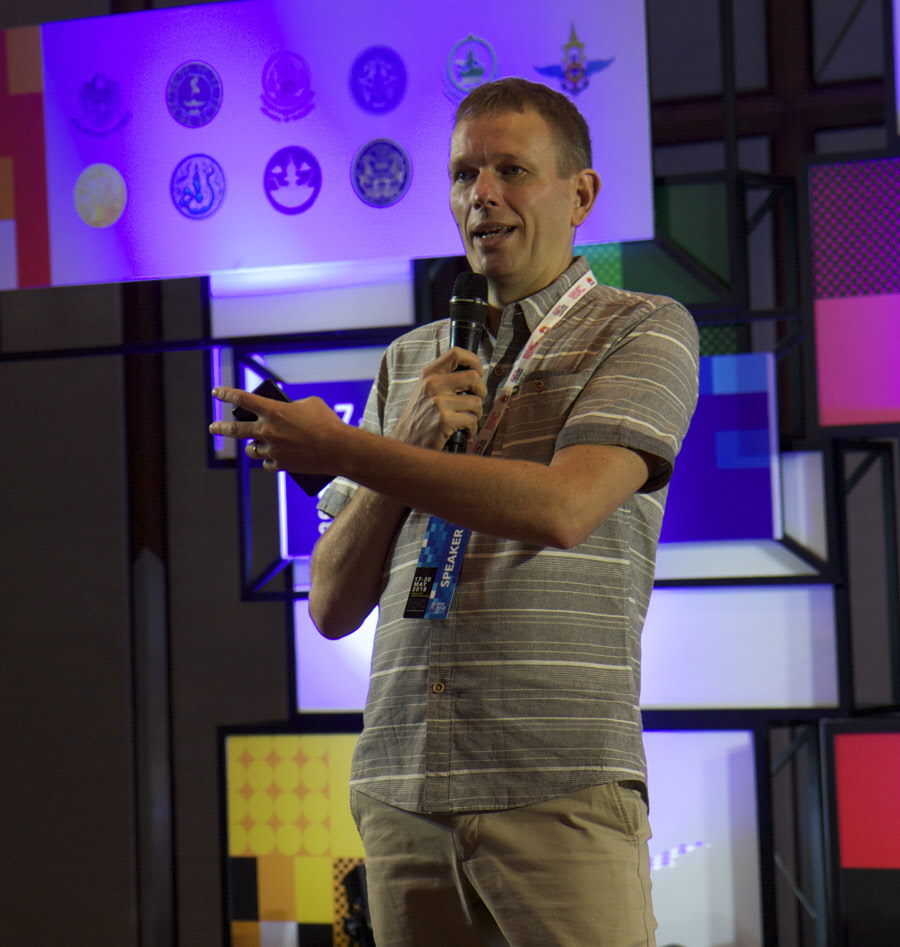
Startup Commons’ workshop on 18 May was titled ‘Digital Side of Startup Ecosystem Development, where Riku Mäkelä, Counsellor, Innovation and Trade Affairs, Embassy of Finland in Singapore, who supports all the Finland teams in different countries all over Southeast Asia, introduced and gave an update on digital ecosystem building back in Finland.
Riku has been active in many start-up ecosystems around the world, including in Southeast Asia and also in Finland, India and Silicon Valley. He described how Finland has over 4,000 public servants, whose job is to help Finnish companies develop their business and their int. business, work in different government organisations and agencies that have their own information systems and databases.
“This workshop is about the digital side of start-up ecosystem development, meaning we have lot of information that we want to share, that we want to collect and connect.”
In Finland it has been difficult to share the data between the different systems and organisations for two reasons: First, technical data having different formats. Second, legal and practise-based; you are not allowed sharing certain data before you have made it legal or agreements for the sharing.
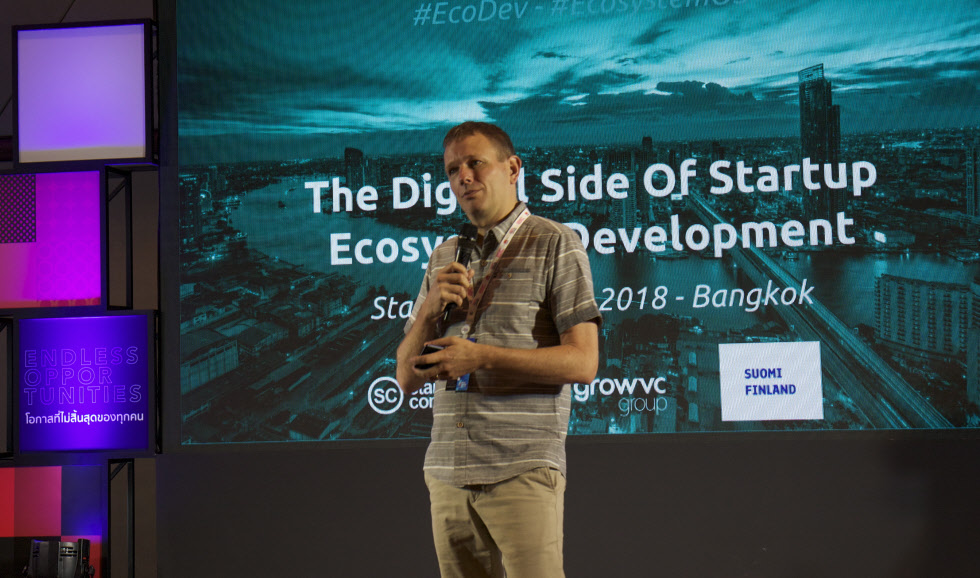
But recently, coinciding with the merging of a couple or state organisations into Business Finland, a national level CRS system is being developed.
“All government employees who help fin companies can all access all info about Finnish companies to develop their business or products and services looking for an international market,” says Riku.
On a smartphone device he can now access all Finnish companies looking for investors currently 1200+ deep tech companies being listed. The same day Riku got to showcase the tool to some investors in Thailand who had been invited to a reception at the Finnish Ambassador’s residence.
“That is based on collaboration of two investment governing bodies in Finland, the Finnish government and City of Helsinki that combined their info and processes and created a joint tool we can now use for accessing data. That is wonderful. Before I got this tool I had no way of knowing who were looking for investors – which is my task, is to look for those investors,” explained Riku.
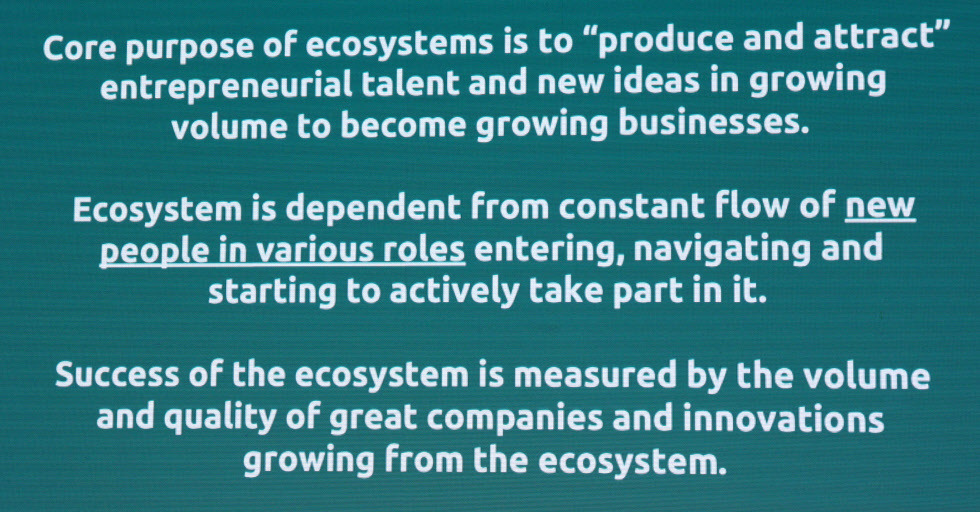
“All these types of things are about how we will operate in the future, so that we can inside of our own ecosystem connect data and better connect the ecosystems to each other. And hopefully we can connect Bangkok data with City of Helsinki data sometime in the future. Then we’ll be able to do things easier together inside the start-up ecosystems and between them.”
Startup Commons has indeed assisted Finland in a couple of markets and its CEO Oscar Ramirez Munoz then continued the workshop with a detailed and very interesting introduction to all the parameters that a digital eco-system entails. He outlined how to support development of start-up ecosystems with right type of data that serves the economic development goals.
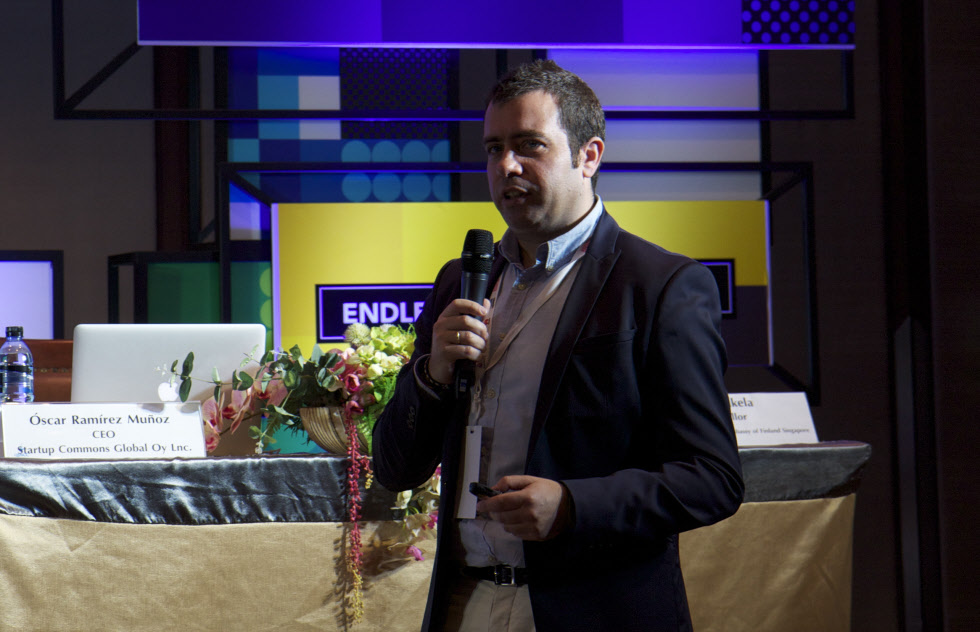
Startup Commons enables effective global sharing of best practises, development efforts and resources between ecosystem operators, supported with our international business creation, ecosystem development and digital expertise and related knowledge, applications and connecting infrastructure, – to empower, enable and facilitate the development, digital transformation and connectivity within and between start-up ecosystems.
On 19 May Anna Ratala, Head of Slush Singapore (the world-renowned Finnish start-up conference) held her presentation ‘Start-up, Sisu and Slush – the 3S of building a global grounds-up movement’, describing in detail the background to the Slush movement and the defined goals with Slush in Singapore, which will have its third edition later in 2018.
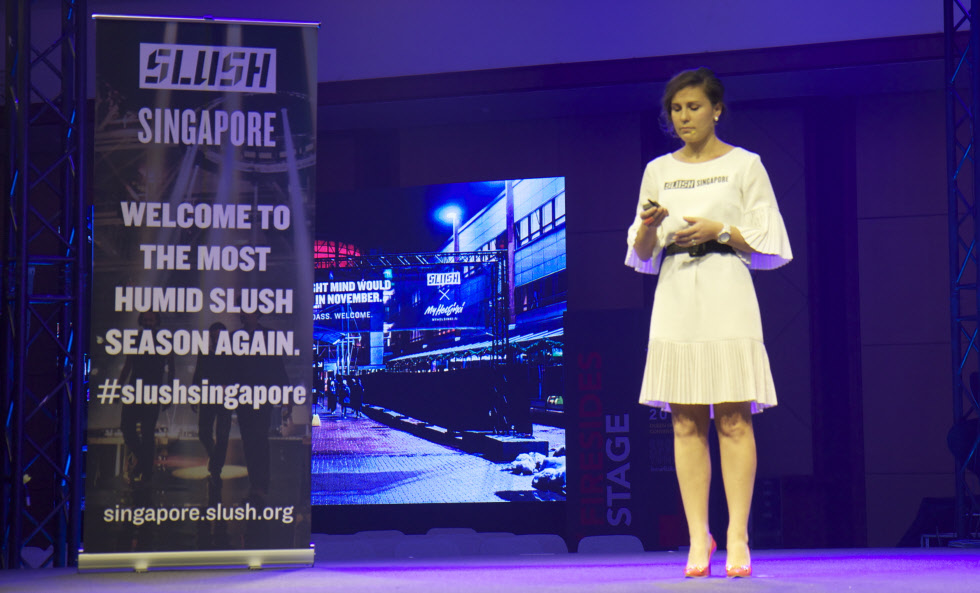
Anna Ratala was on a message to bring the key message to people in Thailand that Slush Singapore is also for them, for Southeast Asia.
She described in detail how this whole movement started over ten years ago: by students! “They decided to gather a few of their entrepreneur friends to talk about entrepreneurship, what it is like to build a start-up, exciting innovations and technology, get inspired, have a good time. It happened very organically, from the grounds up, because people just gathered around a topic they were very passionate about. And that’s the number one thing with Slush. People just wanted to do what they really believed in; there was nobody to guide them or tell them what to do,” Anna told the Startup Thailand audience.
After managing to accomplish an event that liked they decided to become organised and continue it. “It was a very positive challenge in that sense. So they started to think: who could be one to drive it and take it further? And the answer to that was: students.”
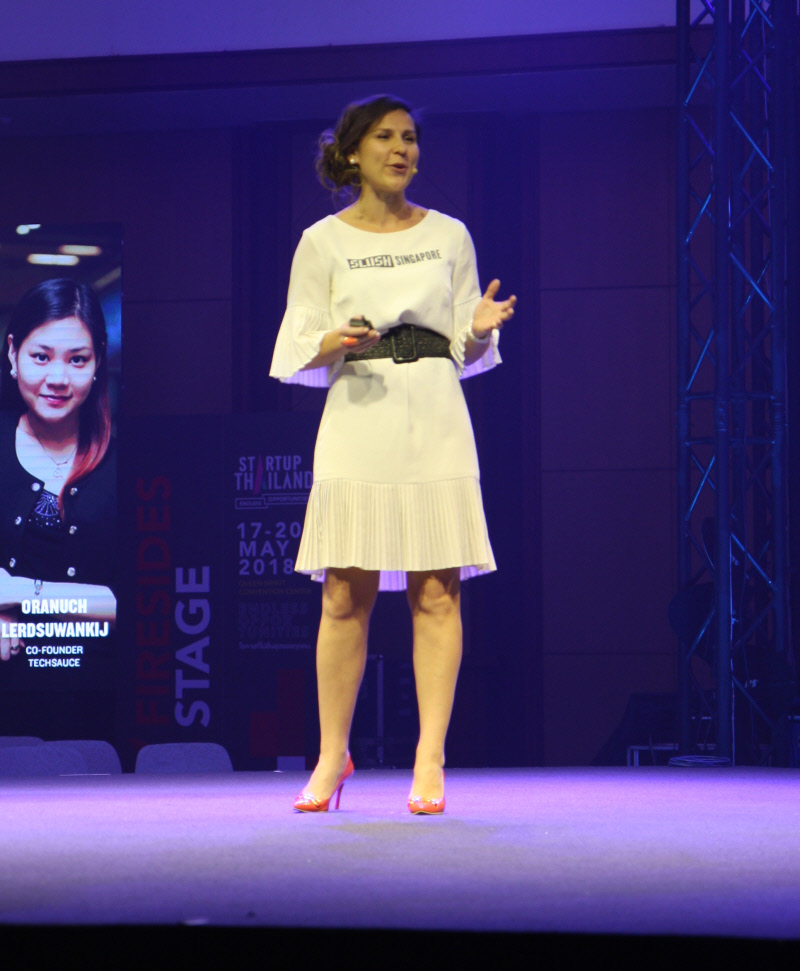 Fast forward to 2018 and Slush Helsinki hade 20 000 visitors from all over the world, including the like of Al Gore and entrepreneurs, influencers and investors from Silicon Valley and including from Asia as well.
Fast forward to 2018 and Slush Helsinki hade 20 000 visitors from all over the world, including the like of Al Gore and entrepreneurs, influencers and investors from Silicon Valley and including from Asia as well.
“Now, the goal of Slush is really to provide a platform for the next generation of world-conquering entrepreneurs; to give them resources, to have them to learn from one another and meet people from all over the world.”
The second thing why people are excited about build Slush is that it is a non-profit organisation, which Anna said makes it different from any other big event of its scale. People are so passionate, they believe so much in the change that they can make that they are actually happy to give their time and effort.
“And this is so powerful, when you combine a group of people with the common purpose it is something that really makes them work really hard and the result is different; when people go to Slush event they say: ‘Oh I feel this energy, this buzz. How do your create it?’” Anna related.
People also get involved because it is fun. Anna demonstrated that with a few examples of wild ideas that the Slush team had accomplished: fire on stage and a Sauna village at the event. “This is the kind of attitude that Slush is all about.”
But what really made it possible are two things. First, Finland’s unique culture of volunteering: “Finland has a very unique mind-set. We take it one step further and say anything that we are passionate about we just go and do it. We don’t wait for someone to come and give instructions. It is probably the country with most non-profit organisations in the world. People start organisations, clubs, and societies all the time around the things they feel passionate about.”
Second is ‘sisu’ (Finnish for perseverance): “Not giving up, doing things against all odds. If something needs to be done you just do it and can trust that people will do it.”
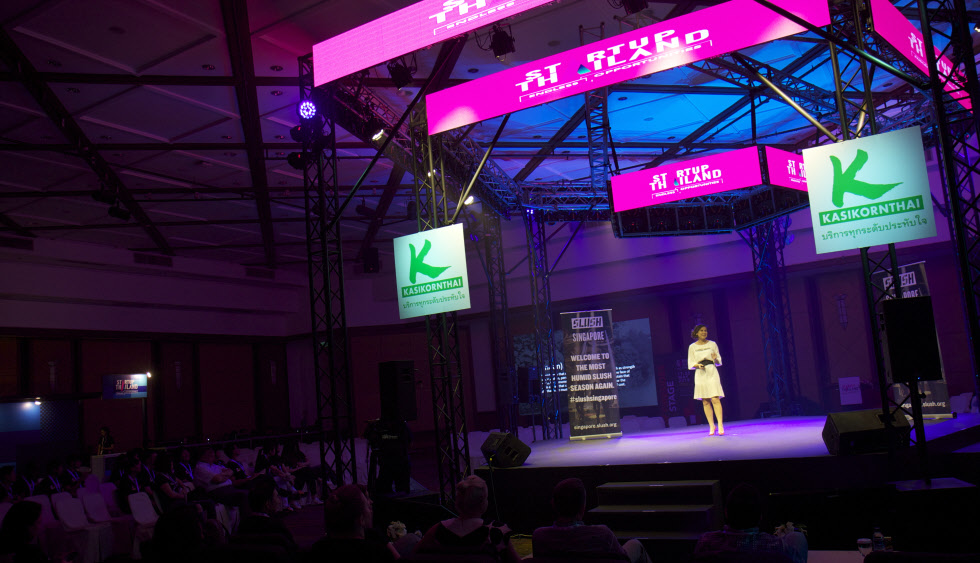
“In the Nordics, a region is only about 0.3 per cent of the world’s population, we produce ten per cent of the billion dollar exits globally. That cannot be a coincidence. So there must be something with the Nordic mind-set that produces it and we believe that from ten years ago when nobody wanted to start a business to today at least in Finland the common denominator is Slush, a platform that encourages people to go ahead and start businesses,” continued Anna, as she went on to explain the goals with Slush in Singapore.
“Every single slush event all around the world is done in the same way; from the grounds up. It is done by the local community and the local people.”
Anna also brought the key message to the Thai audience that Slush Singapore is also for them, for the whole of Southeast Asia [SEA]. She invited Thais to join the movement in Singapore, also as volunteers for the event taking place on 14 September 2018.
With Slush in Southeast Asia they want to focus on achieving three key things. The first one concerns the attitude towards entrepreneurship. “The mind-set is still not there one hundred per cent. If you graduate and want to start a business you still have to convince your mom and dad. Very often they will say like give you one year to prove that you’re going to be successful.”
We want to promote that failure is O.K because there is no way you’re going to be a successful entrepreneur if you don’t fail many times and you really have to fail big to gain success. We just want to be a platform where we invite inspiring and exciting entrepreneurs to also share their failure stories.”
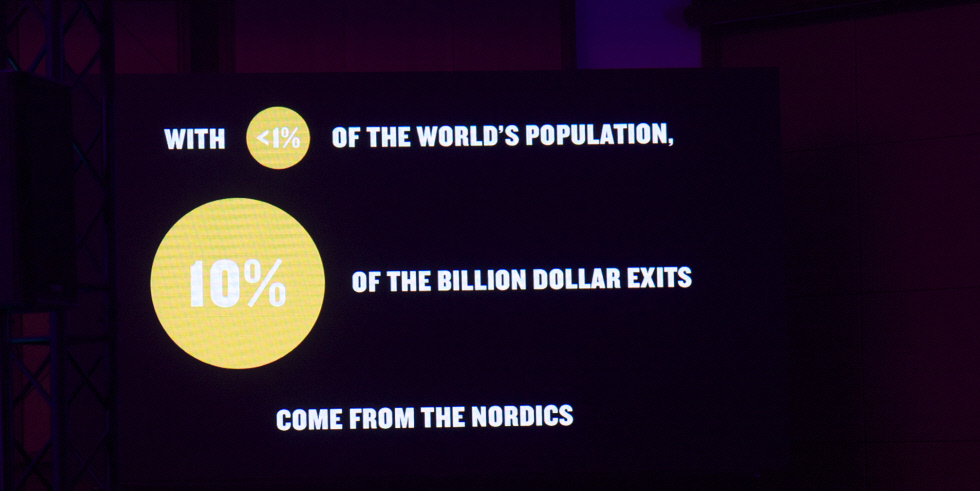
The second thing is to build a new culture of volunteering. “At Slush Singapore we can see how amazing ideas they have. But very often your first job after graduation is to go and work for a corporate. But you can do so much more and we want to be that platform for the pool of talent in SEA to show what you actually can do, that you are smart and resourceful. We believe that by doing this, when you eventually graduate and go to work for businesses you are going to bring a lot of more value, because you already have hands-on experience. And we hope that we can encourage you to start your own business as well.”
“Finally we want to put SEA on the map. We think it’s time to do that because in Europe when we speak about Asia many people still think ’China’. This particular region I think is much unknown to people from the business perspective. There are so many exciting opportunities, especially within technology, so we are going to reassure the world what SEA is all about. This year we want to invite you all from Thailand – top start-ups, investors, business owners, entrepreneurial minds and students – to Slush, so the world sees the best of Sea. We want to be the starting point to realise the potential for SEA Asia,” Anna concluded.
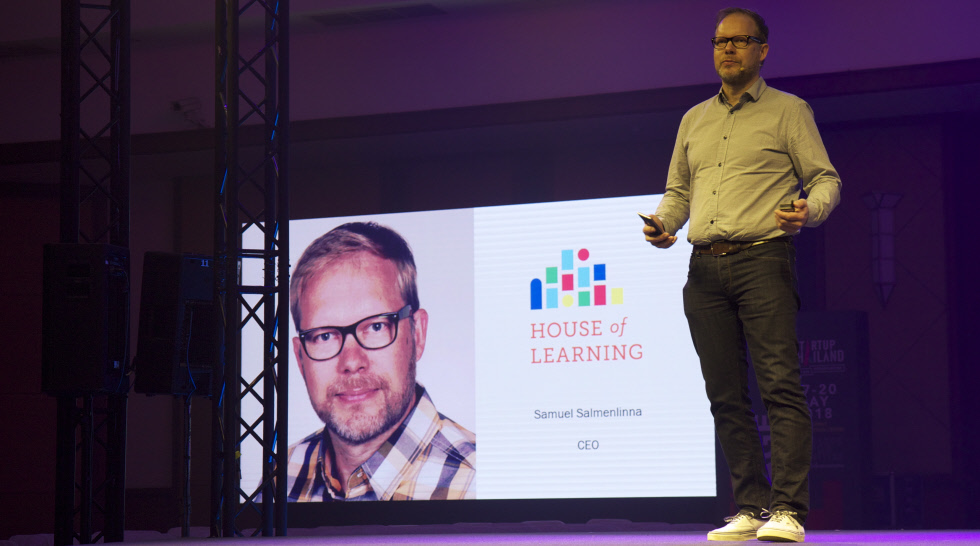
Then, two Nordic education-related start-ups also took to the stage. House of Learning comes from Finland and its CEO Samuel Salmenlinna and VP Pedagogy Kati Nevatalo explained their application for pupils and teachers, which brings learning results to the next level by integrating modern pedagogies to everyday learning. Kati who had seen the problem hands-on partnered up with Samuel to create the solution based on her idea, described as a ‘Pedagogical leap in K-12 education’.
The pedagogies applied are based on global research and widely applied in the world leading Finnish Education System, with an application is simple and visible and does not put additional effort on teachers. The application makes learning transparent and shifts the ownership of learning to the pupil. It eases burden on teachers and provides easy way to communicate and set expectations with guardians.
House of Learning has been deployed in Finland with the Finnish national Curriculum in November 2017 and they are planning to launch the service in Singapore during the summer 2018.
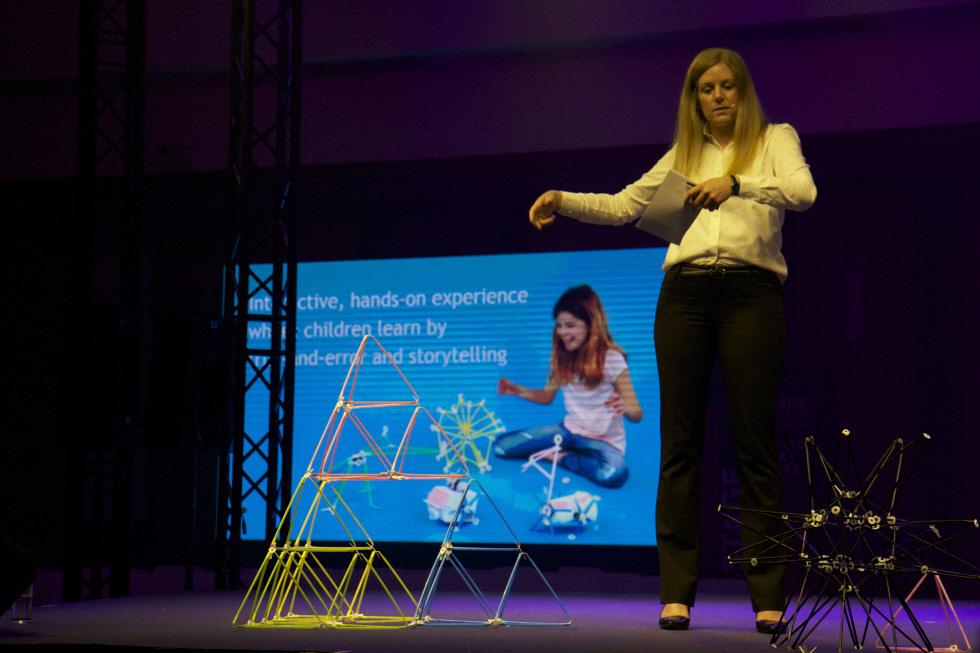
Also ‘Strawbees’ of Sweden, represented by Angelica Rådman and Erik Törnqvist, introduced their learning platform (already on the market in Thailand for a few years).
Strawbees promotes the development of problem solving skills, creatively engages students through hands-on learning challenges, and encourages relating design, construction, electronics and programming to specific subjects.
This start-up began with the invention of their patented connectors in 2013. Their open-ended system creates opportunities for fun and engaging experiences for beginners and experts of all ages. As a different take on the conventional teaching, emphasis is on play and curiosity in the classrooms, encouraging learning by making.
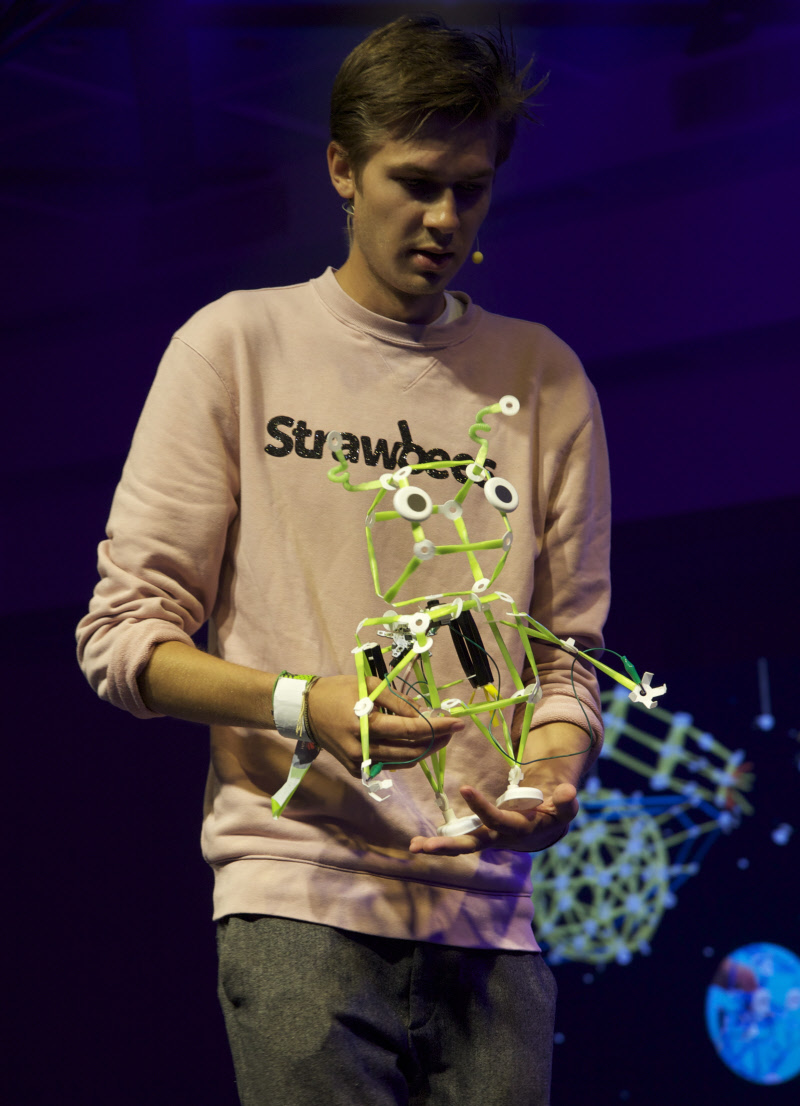 The point of departure is that one learns a great deal when being forced to think for one self, rather than following instructions.
The point of departure is that one learns a great deal when being forced to think for one self, rather than following instructions.
“The important thing is not the end result, it’s the journey exploration. We encourage everyone to embrace challenges with a great deal of humour, curiosity and courage because we believe that problem solving with a positive attitude fosters immense creativity.”
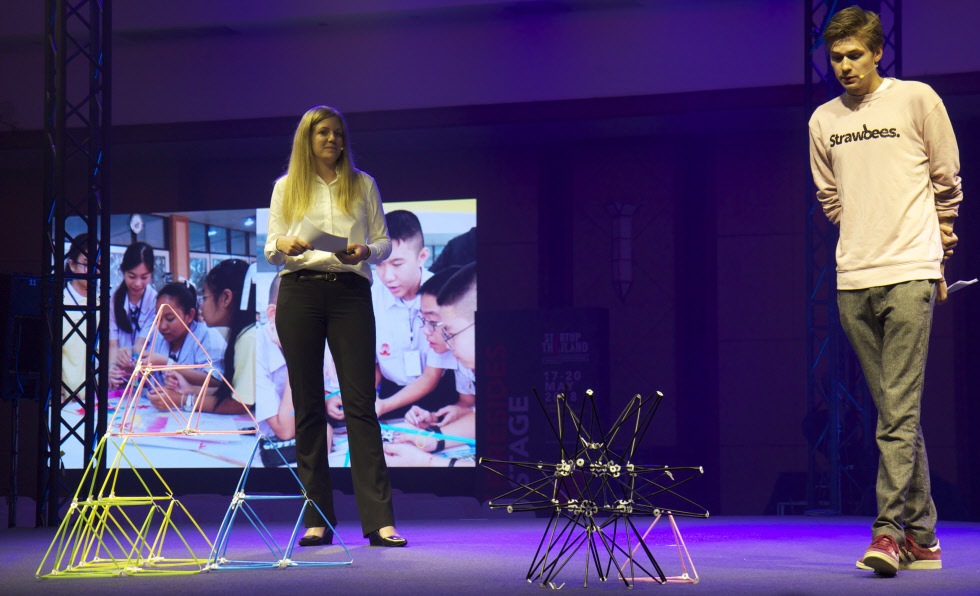



As of late, there has been a sensational expansion in the quantity of content new businesses in Asia. A substance startup is an organization that makes and disperses advanced content, like sites, recordings, articles, and so on. What has driven this increment? Furthermore, what are the basic elements for an effective substance startup in Asia? In this blog entry, we will address these inquiries and that’s only the tip of the iceberg.
https://vibez365.com/the-business-model-for-content-startups-the-asian-entrepreneur/